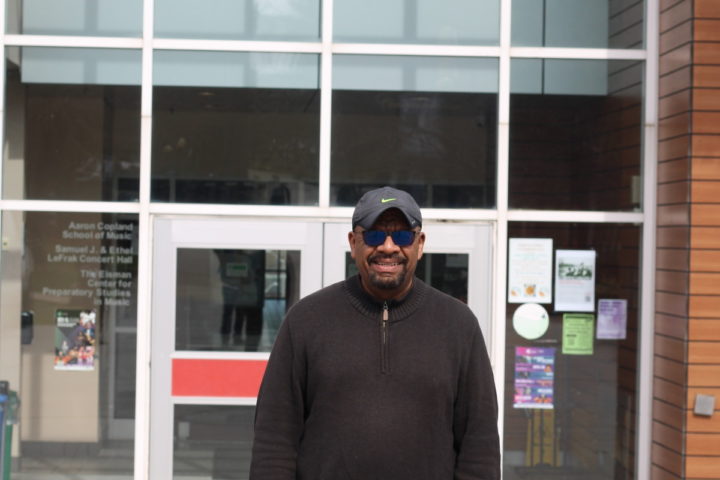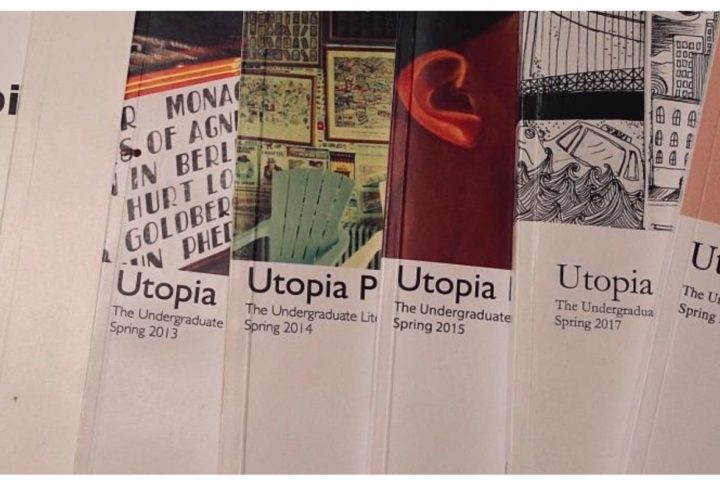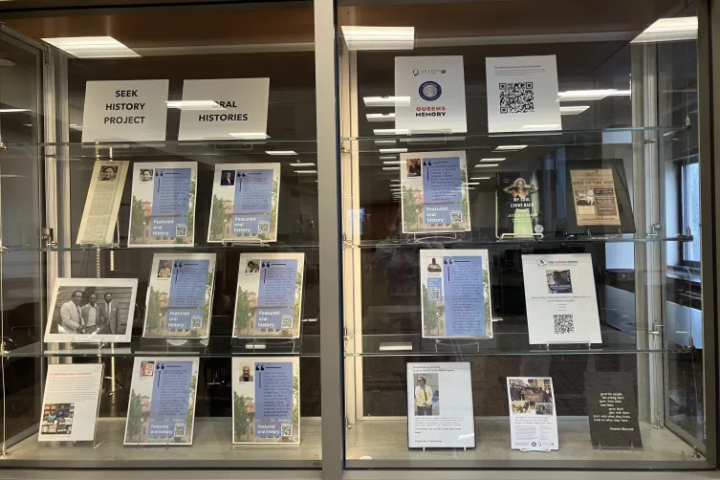Sofia, a student at QC, is safe for two years, but her family isn’t. Sofia is a 21-year-old undocumented immigrant. She asked that her real name not be used, so I came up with Sofia.
Sofia, is safe after signing up for deferred action — a program allowing undocumented students to stay in the U.S. for two years without worry. She came to the U.S. from Ecuador when she was nine. She and her mother each had month-long travel visas, but never left once they expired.
In the last month, my mother and I sat in synagogue for Rosh Hashanah — the Jewish New Year and Yom Kippur — the Day of Judgment. Unlike the period’s secular counterpart, the days mark the opening of two books by Go d —the Book of Life and the Book of Death. The day marks the future — am I going into the book of life, blessing, peace and livelihood, or the book of death, disharmony and destitution?
With the federal court decision on Sept. 5, allowing all authorities in Arizona to check the status of any person they suspect isn’t legal, I’ve got to imagine that to an illegal immigrant, every day feels like judgment day — and that isn’t right.
Sofia is now one of 1.7 million immigrants who came to the U.S. — undocumented — as minors and have now applied for deferred action. Nevertheless, Homeland Security department officials have not yet reported that any applicants have been approved and their deportations deferred.
“I don’t feel like I’m living in a shadow or hiding — I feel like I’ve been living handcuffed without cause, without reason. All my life has been surrounded with limitations,” Sofia said.
Sofia refused to provide contact information for her family, citing concern for their safety, a concern she held for herself as well, until recently.
“Being found out is something I have feared and struggled with my entire life since I realized what position I’m in as an undocumented immigrant,” Sofia said.
College opportunities, shots at scholarships, Sofia’s dream of becoming a pediatrician — all shot down because she never had a social security number to put on applications. Sofia — like other undocumented students — is forever stuck on the outside looking in.
A Harvard Educational Review 2011 study reports that “fear and vigilance” guide the home lives of children whose parents are undocumented immigrants. These children — around 5.5 million according to estimates from the Pew Research Center — are found to have lower rates of cognitive development and engagement in school.
Now, Sofia is a sophomore at QC. She likes writing poetry, playing volleyball and soccer and swimming and is an English major. If she lived in Arizona, she may already have had her right to do those things taken away. She looks Hispanic and that alone gives a police officer in Arizona the right to request she show her papers.
Nationwide, immigration authorities deported record numbers of illegal immigrants in 2011 and are on track to top that amount this year. As of Aug. 31, more than 366,000 undocumented immigrants were deported this year. An additional 324,000 foreigners were expelled by Homeland Security agents without formal court proceedings.
Sofia’s father drove to work for years without a driver’s license — risking arrest and deportation, but his fear of being separated from his family is now so great that he pays someone to drive him to work.
“It still hurts me not to be able to share the freedom that I will gain through a work permit and social security number with my mother and my father,” Sofia said.
Sofia and her family are boxed into a situation where they have to worry about this, where they have to deal with frustration and the possibility of heartbreak.
Some people are angered by the deferred action policy. Some cheered the decision to allow police in Arizona stronger measures with which to weasel out undocumented individuals. But those people need to think about the hardship deportation causes — the heartbreak the friends and family of the deported individual go through.
As I prayed recently and felt a frantic tremble go through me at the thought of judgment, I had to ask: what did immigrants do to deserve feeling this way every day? Everyone should think on that; think on a moment of judgment in your life — would you want to have that hanging over you at all times?
Regarding herself, Sofia can relax for two years, but her little brother, her mother and her father still face that judgment every day — will I get to stay or not?
Would you be able to live with something like that hanging over your head? Would you allow something like this to weigh on the shoulders of your loved ones? I wouldn’t and you shouldn’t either. Let’s grant legal status to all undocumented citizens as a step forward in progressive values and justice in the U.S.













